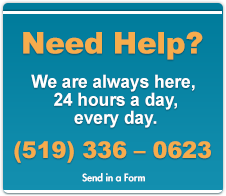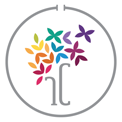We work alongside families and communities to help children and youth be safer and live their lives well.
Your Duty to Report
Basically, everyone has a duty to report child abuse... read what the Child Youth & Family Services Act says about it.
Responsibility to report a child in need of protection - CYFSA s.72(1)
If a person has reasonable grounds to suspect that a child is or may be in need of protection, the person must promptly report the suspicion and the information upon which it is based to a Children's Aid Society.
The situations that must be reported are listed in detail below.
Child Youth and Family Services Act CYFSA s.72 (1)
Despite the provisions of any other Act, if a person, including a person who performs professional or official duties with respect to children, has reasonable grounds to suspect one of the following, the person shall forthwith report the suspicion and the information on which it is based to a society
1. The child has suffered physical harm, inflicted by the person having charge of the child or caused by or resulting from that person's,
i. failure to adequately care for, provide for, supervise or protect the child, or
ii. pattern of neglect in caring for, providing for, supervising or protecting the child.
2. There is a risk that the child is likely to suffer physical harm inflicted by the person having charge of the child or caused by or resulting from that person's,
i. failure to adequately care for, provide for, supervise or protect the child, or
ii. pattern of neglect in caring for, providing for, supervising or protecting the child.
3. The child has been sexually molested or sexually exploited, by the person having charge of the child or by another person where the person having charge of the child knows or should know of the possibility of sexual molestation or sexual exploitation and fails to protect the child.
4. There is a risk that the child is likely to be sexually molested or sexually exploited as described in paragraph 3.
5. The child requires medical treatment to cure, prevent or alleviate physical harm or suffering and the child's parent or the person having charge of the child does not provide, or refuses or is unavailable or unable to consent to, the treatment.
6. The child has suffered emotional harm, demonstrated by serious,
i. anxiety,
ii. depression,
iii. withdrawal,
iv. self-destructive or aggressive behaviour, or
v. delayed development,
and there are reasonable grounds to believe that the emotional harm suffered by the child results from the actions, failure to act or pattern of neglect on the part of the child's parent or the person having charge of the child.
7. The child has suffered emotional harm of the kind described in subparagraph i, ii, iii, iv or v of paragraph 6 and the child's parent or the person having charge of the child does not provide, or refuses or is unavailable or unable to consent to, services or treatment to remedy or alleviate the harm.
8. There is a risk that the child is likely to suffer emotional harm of the kind described in subparagraph i, ii, iii, iv or v of paragraph 6 resulting from the actions, failure to act or pattern of neglect on the part of the child's parent or the person having charge of the child.
9. There is a risk that the child is likely to suffer emotional harm of the kind described in subparagraph i, ii, iii, iv or v of paragraph 6 and that the child's parent or the person having charge of the child does not provide, or refuses or is unavailable or unable to consent to, services or treatment to prevent the harm.
10. The child suffers from a mental, emotional or developmental condition that, if not remedied, could seriously impair the child's development and the child's parent or the person having charge of the child does not provide, or refuses or is unavailable or unable to consent to, treatment to remedy or alleviate the condition.
11. The child has been abandoned, the child's parent has died or is unavailable to exercise his or her custodial rights over the child and has not made adequate provision for the child's care and custody, or the child is in a residential placement and the parent refuses or is unable or unwilling to resume the child's care and custody.
12. The child is less than 12 years old and has killed or seriously injured another person or caused serious damage to another person's property, services or treatment are necessary to prevent a recurrence and the child's parent or the person having charge of the child does not provide, or refuses or is unavailable or unable to consent to, those services or treatment.
13. The child is less than 12 years old and has on more than one occasion injured another person or caused loss or damage to another person's property, with the encouragement of the person having charge of the child or because of that person's failure or inability to supervise the child adequately.
Ongoing duty to report - CYFSA s.72(2)
The duty to report is an ongoing obligation. If a person has made a previous report about a child, and has additional reasonable grounds to suspect that a child is or may be in need of protection, that person must make a further report to a Children's Aid Society.
Persons must report directly - CYFSA s.72(3)
The person who has the reasonable grounds to suspect that a child is or may be in need of protection must make the report directly to a Children's Aid Society. The person must not rely on anyone else to report on his or her behalf.
What are "reasonable grounds to suspect?"
You do not need to be sure that a child is or may be in need of protection to make a report to a Children's Aid Society. "Reasonable grounds" are what an average person, given his or her training, background and experience, exercising normal and honest judgment, would suspect.
Special responsibilities of professionals and officials, and penalty for failure to report - CFSA s.72(4), (6.2)
Professional persons and officials have the same duty as any member of the public to report a suspicion that a child is in need of protection. The Act recognizes, however, that persons working closely with children have a special awareness of the signs of child abuse and neglect, and a particular responsibility to report their suspicions, and so makes it an offence to fail to report.
Any professional or official who fails to report a suspicion that a child is or may be in need of protection, where the information on which that suspicion is based was obtained in the course of his or her professional or official duties, is liable on conviction to a fine of up to $1,000.
Professionals affected - CYFSA s.72(5)
Persons who perform professional or official duties with respect to children include the following
- health care professionals, including physicians, nurses, dentists, pharmacists and psychologists;
- teachers, and school principals;
- social workers and family counsellors;
- priests, rabbis and other members of the clergy;
- operators or employees of day nurseries;
- youth and recreation workers (not volunteers);
- peace officers and coroners;
- solicitors;
- service providers and employees of service providers; and
- any other person who performs professional or official duties with respect to a child.
This list sets out examples only. If your work involves children but is not listed above, you may still be considered to be a professional for purposes of the duty to report. If you are not sure whether you may be considered to be a professional for purposes of the duty to report, you should contact your local Children's Aid Society, professional association or regulatory body.
Professional confidentiality - CYFSA s.72(7),(8)
The professional's duty to report overrides the provisions of any other provincial statute, specifically, those provisions that would otherwise prohibit disclosure by the professional or official.
That is, the professional must report that a child is or may be in need of protection even when the information is supposed to be confidential or privileged. (The only exception for "privileged" information is in the relationship between a solicitor and a client.)
Protection from liability - CYFSA s. 72(7)
If a civil action is brought against a person who made a report, that person will be protected unless he or she acted maliciously or without reasonable grounds for his or her suspicion.
What will the Children's Aid Society do?
Children's Aid Society workers have the responsibility and the authority to investigate allegations and to provide services to protect children.
A Children's Aid Society worker may, as part of the investigation and plan to protect the child, involve the police and other community agencies.
How to contact a Children's Aid Society
Check the telephone directory for the office closest to you. In some communities, the Children's Aid Society is known as "family and children's services." The emergency pages in most Ontario telephone directories have the number to call to report to a Children's Aid Society.
All the children's aid societies/family and children's services have emergency service 24 hours a day, so that you can call anytime.
For more information
Contact your local Children's Aid Society or family and children's services.
If you suspect that a child is or may be in need of protection, contact a Children's Aid Society immediately. Your co-operation is vital to making Ontario's child protection system work.


